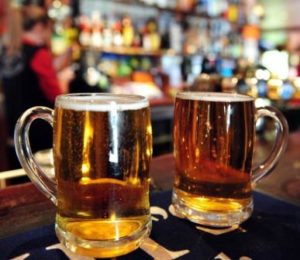
Liquor licensing legislation in Australia is a key tool to reduce alcohol-related crime and other problems.
In light of this, researchers at the National Centre for Education and Training on Addiction (NCETA) at Flinders University undertook a national review of liquor licensing legislation.
The project, which was led by Professor Ann Roche, was initiated by Australia’s Intergovernmental Committee on Drugs and funded through the National Drug Strategy Cost Shared Funding Model. The project was overseen by, and undertaken in partnership with, South Australia Police.
The review involved a detailed examination of legislation from each of Australia’s states and territories as at 30 December 2010.
The project also involved interviewing police from around Australia to gain their perspectives on the effectiveness of the legislation.
This is the first time that such an examination has been undertaken.
The research found that problems associated with alcohol intoxication place a major burden on police.
“Alcohol intoxication is a major problem despite the fact that it is an offence in every state and territory for the staff of licensed premises to continue to serve alcohol to drunken patrons,” Professor Roche said.
“Over the past decade Australia has experienced a dramatic increase in the numbers and types of licensed premises, enhanced hours of alcohol availability and a larger range of alcoholic beverage types,” she said.
“The reports from the project provide an important opportunity for the country to take stock of liquor licensing arrangements and to ensure that they best serve the needs of the community.”
The review also found that:
- Australian liquor licensing legislation tended to favour the interests of the alcohol industry and did not always give police and liquor licensing authorities the powers they needed to reduce alcohol-related crime and disorder;
- some legislation was out-dated, overly complex and needed fundamental reform;
- police were often not sufficiently involved in legislative and regulatory reform processes and in licensing decision-making; and
- in some jurisdictions an opportunity existed to clarify the roles of police and liquor licensing authorities in reducing alcohol-related problems.
As a result of these problems, some jurisdictions have amended their legislation since the review was undertaken.
The review also confirmed that nationally, police agencies are firmly committed to reducing the harm associated with alcohol.
Police expressed support for measures aimed at:
- supply reduction – liquor licensing enforcement to address supply of alcohol;
- demand reduction – public education to reduce demand for alcohol; and
- harm reduction – front line policing and collaborative problem solving.
Nationally, police agencies also identified that the complex issues associated with alcohol purchase and consumption cannot be addressed in isolation.
A broad range of agencies and stakeholder partners need to be involved in responding to alcohol issues.
The three reports from the study also identify areas in which legislation and administrative arrangements could be strengthened to better enable police to reduce alcohol-related problems.
The reports are available at the NCETA and Australian Government Department of Health and Ageing website.


A very worthy piece of research however I am not sure that a photo of two sparkling glasses of beer are the best way to promote ‘demand reduction’ and do justice to the report.